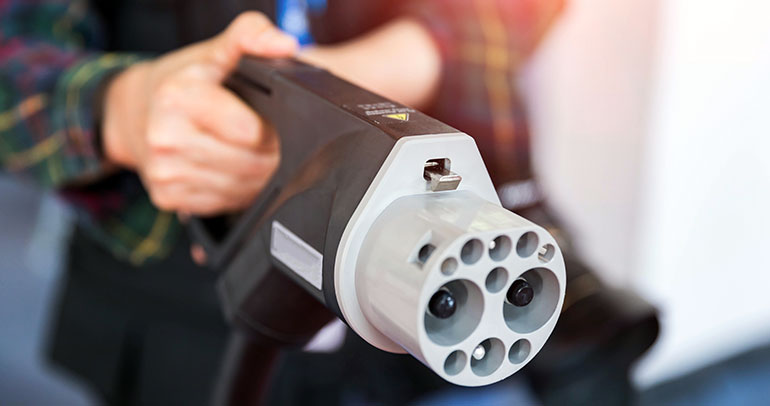
Electrification is coming. We’ve heard it time and again over the years, and the message is only getting louder, more prevalent, more urgent. Electric vehicles are being developed for release in droves over the next few years, and the commercial fleet vehicle industry will be at the forefront of this mobility evolution.
The electric evolution of fleets was also, once again, a central theme at the 2020 NTEA Work Truck Show. However, this year was less about the “what” and more about the “how”—as in how to prepare for fleet electrification.
The commercial fleet industry is shifting its focus to getting ready for electric trucks and the impacts this will bring upon the entire ecosystem because, make no mistake—electrifying fleets will disrupt the entire supply chain.
Impacts on Commercial Fleets
This is only part of what our Automotive & Mobility team at Escalent has seen coming for a while now: electrification along with data analytics and telematics are already heavily disrupting commercial fleets. With over four decades of research and consulting experience in the automotive industry, which includes working closely within the commercial fleet vehicle ecosystem, we have cultivated an intimate understanding of its inner workings, pain points, and opportunities within this industry. And, we have been sharply focused on helping commercial fleets mitigate impacts of, leverage, and succeed with these new technologies that are rapidly building momentum.
This is why we developed Fleet Advisory Hub™—a unique research solution that provides access to a member base of deeply profiled and engaged commercial fleet decision-makers—to conduct regular research on the tools and technologies being used in the commercial fleet business today as well as those that will shape tomorrow’s future. With a total of 806 fleet decision-makers, we dug deep into understanding their perceptions and implementation of four core tools and technologies—Autonomous Vehicles, Data Analytics, Electric Vehicles, and Telematics Devices—within their businesses as part of our flagship research program, the Fleet Technology Index (FTI).
We were able to shed light onto the underbelly of what’s really going on with technology adoption inside the commercial fleet vehicle industry:
- Commercial fleet companies have rapidly evolving needs for tools and technologies to support their businesses, and these needs are changing much faster than manufacturing product development cycles can keep up with. Fleet service providers are in a better position to more rapidly adapt their offerings.
- Fleet decision-maker participants have more favorable opinions of tools and technologies when they are integrated into their business and bring tangible, visible value. The participants ranked the following in order of favorability and likelihood to invest in more over the next six months: Data Analytics, Battery Electric Vehicles, Telematics, and Autonomous Vehicles.
- The timeline for non-adopters to implement these tools and technologies ranges from three to five years.
- There is significant opportunity with one-third of fleet leaders who envision adopting electric trucks within the next twelve to twenty-four months.
Electric trucks are coming, quickly, and commercial fleet businesses must accept it now if you have not already. However, regardless of your company’s current position on adopting electric trucks, electrifying fleets is going to change how commercial fleet business is done. Even if your commercial fleet has not implemented or adopted any electrification changes to date, you will be affected by the impacts to the larger industry, which includes the overall fleet supply chain. It is critical to the success of all companies to start preparing today for the impact of electrification on the fleet ecosystem and all future implications this will have on your business. To help you with this, here are five practical considerations for you to start addressing today.
Five Key Considerations for Fleet Electrification that Businesses Need to Start Addressing NOW
- Plan for Process Changes: Electric vehicles are not a one-for-one proposition; they don’t directly replace internal combustion trucks. Fleets need to consider process changes along with updates to vendor and customer interactions as you on-board electric trucks.
- Consider the Impacts to Your Entire Business: Electrification changes how organizations operate and how they do business. Range, load size, route efficiency, opportunity to charge, amount of time on the road, truck time utilization, and charging schedules will influence the entire supply chain, and impact fleet adoption and implementation.
- Increase Collaboration within your Supply Chain: As electrification of fleets expands, it will be increasingly important to cooperate and collaborate with others in the supply chain to address and solve the impacts of electrifying part or all of your fleets.
- Focus on Optimization: Traditional scheduling and timing will change as fleet electrification grows, which makes supply chain optimization even more valuable.
- Use Data to your Advantage: The utilization of data and analytics, including telematics information and other sources, is even more important as fleets electrify. It will be critical to long-term success to understand and implement programs that use this data to monitor and improve electric vehicle performance.
Impacts for Manufacturers & Service Providers of Commercial Fleet
In this age of ever-increasing need for commercial fleet vehicle businesses to integrate new tools and technologies, manufacturers and service providers need to empathize and partner with their fleet customers to intimately understand and overcome the significant challenges their customers face. This will allow manufacturers and service providers to iterate quickly and continue to provide best-in-class products and services to their fleet customers.
We are always interested to learn more and believe that you—the reader—have a unique perspective to add to the dialogue. Feel free to send us a note directly to talk further about the incredible nuances of the commercial fleet industry or the findings from our FTI study.








